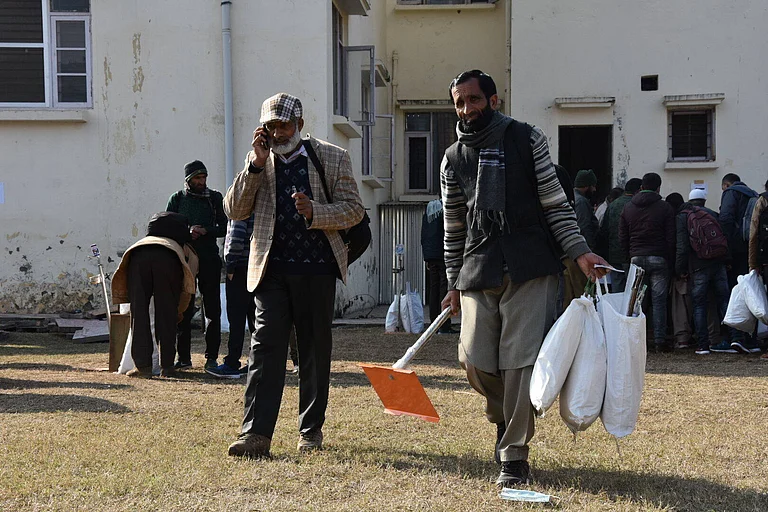India fought for the interests of the Global South when developed countries tried imposing restrictions on coal during the UN climate talks in Dubai in December, Environment Minister Bhupender Yadav said on Monday.
Speaking here at the launch of a book titled "Modi: Energising a Green Future", the minister said rich nations, historically responsible for climate change, should not try to hinder the development of the Global South.
"When they said countries will have to apply for permission for coal (expansion), India fought for the interests of the Global South," Yadav said.
India also argued that fossil-fuel subsidies cannot be stopped if linked to poverty eradication in smaller countries, the minister revealed.
A draft deal text in Dubai featured stringent language, albeit optional, regarding coal to the detriment of heavily coal-dependent countries like India and China.
"Rapidly phasing down unabated coal and imposing limitations on new and unabated coal power generation," it read. The final text lacked this reference, suggesting a strong pushback from heavily coal-dependent countries.
Yadav emphasised that no country can develop without energy access and that India focuses on meeting its energy needs and achieving green growth simultaneously.
Responding to questions at a press conference last month, the minister had said India is committed to meeting the energy needs of its people and will also have to rely on coal power until it achieves the status of a developed country.
He had said the country cannot meet the energy needs of its people by just "importing oil and gas".
India relies on coal for about 70 per cent of its power generation.
Yadav highlighted that in Dubai, the countries agreed for the first time to have a clear definition for climate finance. This, he said, would ensure that climate finance is climate-specific, additional, grant-based and provided under highly-concessional terms.
Yadav further said the West follows an anthropocentric development model, placing human beings at its centre. "After 200 years, we have realised that we need to develop a deep ecological sense -- a philosophy propagated by countries like India and Japan in the East," he said.
The minister noted that the debate on environment involves two extremes -- those who believe everything has ended and those who think technology will fix everything.
"Under the prime minister, we are fighting a different battle, taking climate-appropriate action," Yadav said, recalling Prime Minister Narendra Modi's significant role in the signing of the landmark Paris Agreement in 2015.
He also pointed out that developed countries captured most of the carbon space in the last 200 years and are now imposing climate targets on developing nations. "National circumstances should be the basis of climate action," the minister added.
India is the only G20 country to have achieved the climate targets set in 2015, he said. Yadav highlighted that India reduced its GDP emission intensity by 33 per cent between 2005 and 2019, achieving the target 11 years in advance. The country reached its non-fossil fuel targets nine years ahead of schedule.
The emission intensity of the economy refers to the total amount of greenhouse gases emitted for every unit increase in the gross domestic product.
At COP28, India urged the rich nations to vacate the carbon space by achieving negative carbon emissions (removing more carbon dioxide from the atmosphere than emitted) and not merely reaching net zero by 2050.
According to the Global Carbon Project, a group of international scientists, India's per capita carbon dioxide emission stood at two tonnes in 2022, which is less than half of the global average of 4.7 tonnes.
The United States tops the per capita emissions chart with every individual in the country emitting 14.9 tonnes of CO2, followed by Russia (11.4), Japan (8.5), China (8) and the European Union (6.2). The US is also the biggest CO2 emitter since the industrial revolution.
Published by Pentagon Press in association with Dr Shyama Prasad Mookerjee Research Foundation, "Modi: Energising a Green Future" is a compendium of insights contributed by distinguished decision-makers and eminent experts from India and abroad.
Among the contributors are Yadav, Haryana Chief Minister Manohar Lal Khattar, Chairman of the Economic Advisory Council to the Prime Minister Bibek Debroy and former chairman of the Haryana Electricity Regulatory Commission R K Pachnanda, among others, a statement said.
The book offers comprehensive analyses of Modi's pioneering efforts in environmental leadership, shedding light on India's ambitious initiatives and contributions towards a sustainable and eco-friendly future.





















